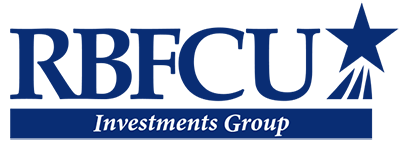How to Arm Yourself Against Fraud and Scams
In today's digital world, criminals can be relentless in their efforts to obtain your financial data. That's because it's a lucrative undertaking. But there are things you can do to help protect yourself.

It's helpful to keep in mind that, above all, scammers want access to money. The Federal Trade Commission (FTC) reports that the three most common scams involve online shopping, business imposters and miscellaneous “investments.”1
Digital thieves are clever, creating elaborate scams designed to trick you into openly sharing your financial information. Again, with the right tactics, you can take steps to stop them.
7 ways to help protect your data
Although total privacy may seem unattainable, there are proactive steps you can take to safeguard your data and personal information.
1. Be sure your computer has the appropriate firewalls and internet security as well as antivirus and antispam software. Use strong passwords and PINs that contain both letters and numbers, including a mix of upper- and lower-case letters and even punctuation marks and symbols (where allowed). Plus, keep your passwords private at all times.
2. Always access your personal financial data from your computer on a private network. Do not use public computers that require you to input personal passwords. Once you finish accessing your accounts, always click the "logout" button before closing your browser.
3. Steer clear of sharing sensitive information over unsecured Wi-Fi connections on public networks. This includes when you connect your laptop to public hot spots at coffee shops, airports, hotels and restaurants. Be careful about what you access through your mobile phone in these spaces, too.
4. Use caution on social media. What you share online can be used to unlock access to your accounts, so be careful about what you post on your own social media, how you respond to other people’s posts, and with whom you engage via direct messages (DMs).
» Tip: It’s also wise to avoid engaging with those “What movies were popular in the year you were born?” or “What was the name of your childhood pet?” memes. That's one way that scammers can gain personal information about hundreds or thousands of people at once. With that information, they may have an easier time of figuring out passwords.
Another common imposter scam? Fake business and job opportunities shared through legitimate social media websites. Many of these scams are designed to collect information on unsuspecting people who are looking to increase their income.
5. Keep personal papers and documents secure. Use safe deposit boxes at your financial institution. If you prefer to keep documents at home, invest in a lockbox or small safe.
If you store information in the digital cloud, research the provider carefully and only select a service that includes two-factor or multifactor authentication. Read the terms of any agreement thoroughly, and ask questions if you have safety concerns.
6. Protect your Social Security Number. Never use your Social Security Number (SSN) as a password, username or PIN. Keep your Social Security card in a safe place like a lockbox or safe deposit box. Only share your SSN when necessary to employers, financial institutions, lenders, credit card companies, credit reporting agencies, government agencies and utility providers or landlords (for credit checks).
7. Regularly check your credit reports for unexpected or unauthorized activity. You may opt to freeze your credit with reporting agencies. This will prompt them to alert you if anyone tries to open a new account in your name. Later, you can temporarily unfreeze your credit when applying for a new credit card or a loan.
How to avoid scams
Phishing emails or text messages are common scams. You might receive an email or text that appears to be from a source known to you such as your credit union, credit card company, government agency or a technology service provider. The message could ask you to click a link or provide sensitive information through a fake website.
Even if a message looks legitimate, complete with the company logo, there are several signs that may indicate that it is a scam. These red flags include (but are not limited to):
- A strong sense of urgency
- A generic greeting, misspelled words or awkward phrasing
- The return email address doesn’t match the company’s name (or the name is misspelled)
- A claim that your account is now on hold because of a billing issue
- A request to use a link to update your personal information in order to resolve a “problem”
Be on the lookout, too, for increasingly common “romance scams” through which criminals adopt fake online identities to gain a vulnerable victim’s interest, trust and personal information. The FTC reports that these scams are now the fourth most common ones for adults between 40 and 59 years of age, with the fifth most common one involving government imposters.2
How to fight back
Stay vigilant against scammers and their traps. Remember that financial institutions and credit card companies will not send an email or text asking you to update your personal information.
If you receive a suspicious email from a company, report it to them immediately using a phone number or through their website — never via the suspicious email or text. If you discover you have mistakenly responded to a scam, contact the misrepresented company immediately. You may also want to visit IdentityTheft.gov3 to protect yourself further.
Keep in mind that some scammers contact victims by phone. If you receive a call, don’t share any personal or account information with the caller. Hang up and contact the company directly to ensure your account and information are safe.
The takeaway
At RBFCU Investments Group, we’re committed to fostering your financial well-being in an atmosphere of trust, experience and integrity. We also take pride in providing our investment clients with tools and resources to help protect their financial information.




.jpg?sfvrsn=2832b3a8_4)